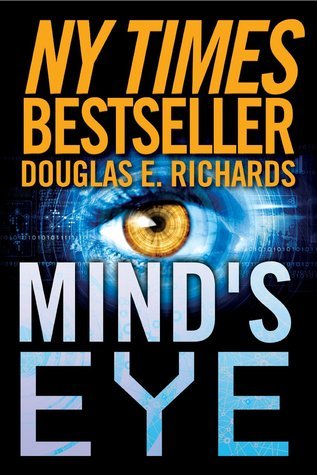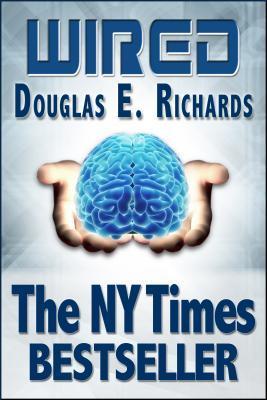
Mind's Eye
Book Description
A revolutionary technology grants access to the secrets of the human mind, but with profound consequences. As society teeters on the brink of chaos, a brilliant scientist races against time to uncover the truth behind the mind-reading device that can manipulate thoughts and emotions. Tension mounts as corrupt forces conspire to control its power, pitting friend against friend and blurring the lines between reality and illusion. Trust shatters, alliances form, and each revelation plunges deeper into a chilling ethical abyss. Can anyone truly own their mind, or is humanity on the verge of becoming mere puppets?
Quick Book Summary
"Mind's Eye" by Douglas E. Richards is a gripping science fiction thriller that explores the profound ethical and societal consequences of a device capable of reading and manipulating human thoughts. When a brilliant scientist, desperate to uncover the truth behind this revolutionary technology, finds himself thrust into a web of intrigue, the stakes quickly escalate. Corrupt organizations seek to weaponize the mind-reading device, causing widespread paranoia and distrust. As the protagonist navigates shifting alliances and shattered trust, he must distinguish reality from illusion and determine who can be believed. Ultimately, "Mind's Eye" is a thought-provoking journey that interrogates the very nature of autonomy, identity, and the sanctity of one's mind in a world where thoughts are no longer private.
Summary of Key Ideas
Table of Contents
The Ethics of Mind Control and Privacy
A revolutionary breakthrough in thought-reading technology upends the fabric of society, enabling unprecedented access to people's innermost secrets. The invention, initially hailed as a tool for understanding and empathy, quickly reveals a darker side: the potential for manipulation, coercion, and the ultimate invasion of privacy. This new power throws society into turmoil as individuals and institutions scramble to adapt, and fear of mental exposure permeates every relationship.
The Fragility of Trust and Alliance
At the heart of the narrative is a gifted scientist who becomes aware of the device's true capabilities and consequences. Driven by a sense of duty and haunted by the potential misuse of the technology, the protagonist embarks on a journey to expose the truth. Along the way, he forms tentative alliances, but soon realizes that trust is in short supply; even those closest to him may have hidden motives or be influenced themselves.
The Challenge of Distinguishing Reality from Illusion
As friend turns against friend and the line between reality and illusion grows blurred, the protagonist must rely on his intuition and resolve. Psychological manipulation becomes pervasive, making it nearly impossible to discern genuine intentions. This uncertainty takes a toll on both personal relationships and the broader social order, with paranoia reaching a fever pitch and violence erupting as factions vie for control.
Power Struggles and Corruption
Throughout the unfolding chaos, powerful interests—corporate, governmental, and clandestine—move to exploit the mind-reading technology for their own ends. The resulting power struggle is intense and far-reaching, transforming the scientist's mission from simple truth-seeking to a wider battle for humanity's future. Corruption and ambition clash with ideals of freedom as each revelation intensifies the stakes.
The Battle for Personal Autonomy
In the end, the book raises chilling questions about autonomy, free will, and the very notion of self. As technology threatens to render thoughts public and controllable, the characters grapple with the loss of their own minds and identities. Richards compels readers to consider whether privacy and individuality can survive in a world where trust is shattered and manipulation is effortless, leaving the final resolution deliberately ambiguous and thought-provoking.
Download This Summary
Get a free PDF of this summary instantly — no email required.





